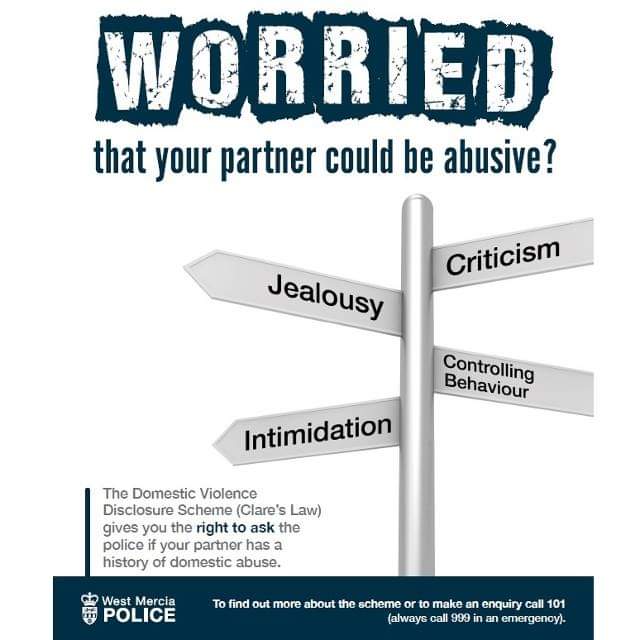Domestic Abuse
Clare's Law
What is Clare’s Law?
Clare’s Law, or the Domestic Violence Disclosure Scheme (DVDS), means that anyone can ask the police about a partner. It is named after Clare Wood who was murdered by her ex-boyfriend George Appleton in 2009. During the investigation in to the murder, her family found that Appleton had a history of violence against women, including repeated harassment, threats and the kidnapping at knifepoint of an ex-girlfriend. Her family started a campaign, with the support of MPs and the Association of Chief Police Officers, that resulted in the scheme being set up.
Clare’s Law gives people the right to ask the police if a partner may pose a risk with the aim to help people make a more informed decision about whether to continue a relationship and to provide help and support when making that choice.
How do I put in an application?
You can do this in person at your local police station or by visiting the West Mercia Police Clare's Law web page
What happens when an application is put in?
Once a request has been made, the police and partner agencies will check their records. If the checks show a record of abusive offences, or suggest a risk of violence or abuse, the police will consider whether to share this information with you, or the person best placed to use the information to protect the person at risk from abuse (e.g. if the person at risk is a young person or a vulnerable adult). The police will assess if the person named in the application is a risk to their partner based on previous violence or abuse convictions. If the subject poses a risk of causing harm this information may be given to the person at risk in a face-to-face meeting, no copies of any records or documents will be provided.
Will the subject know they are being checked out, and who asked for the check?
No, they will not be told that they are being checked out unless the police need to give someone information to keep someone safe – a disclosure. If a disclosure does take place the subject may be informed that someone is going to receive a disclosure about them.
